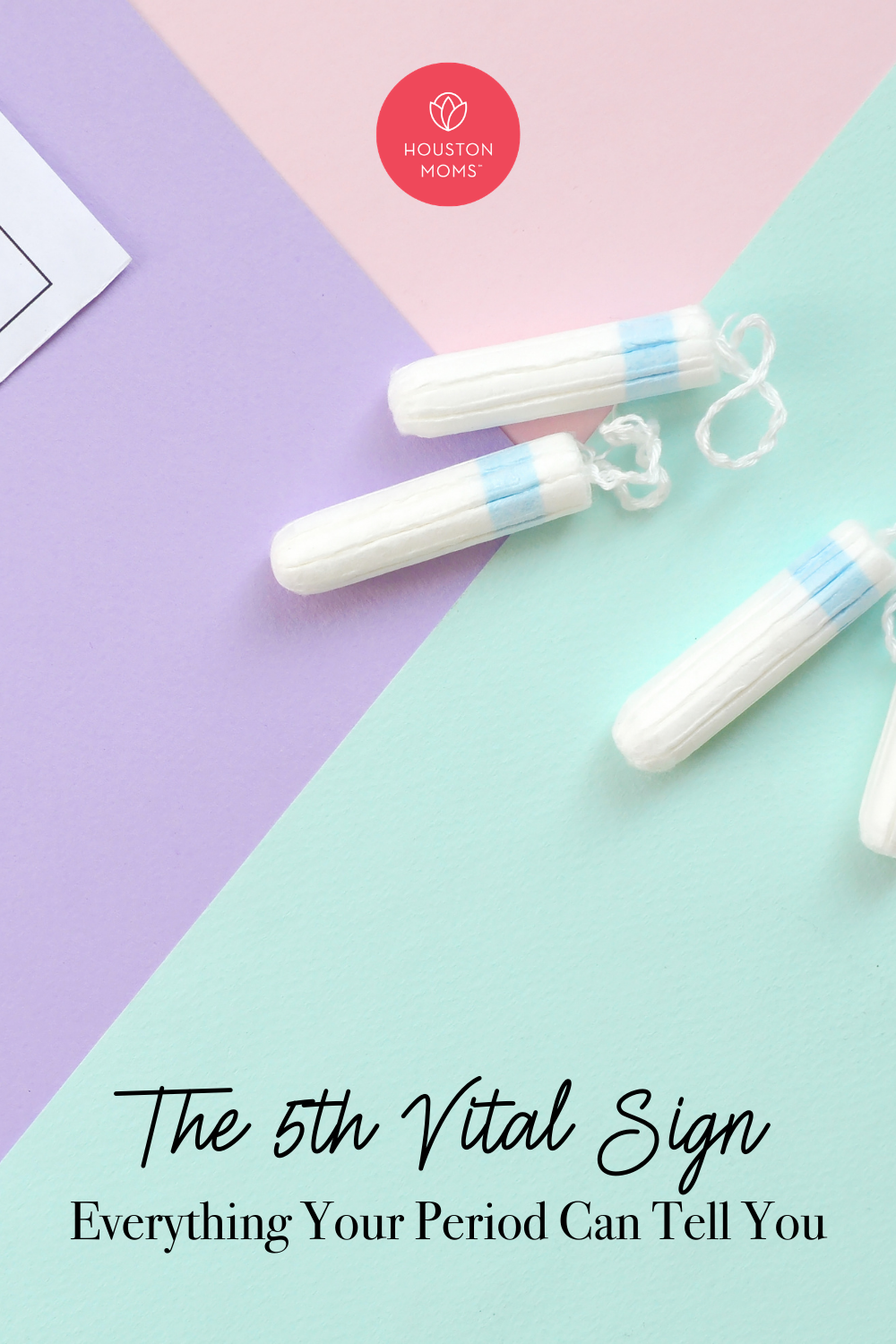
As a gynecologist and infertility specialist, I can launch into chatting about periods, hormones and menstrual cycles easier than I can make conversation about the weather {true fact}. Partly, I love bringing up this topic because I am so aware, through personal conversations, professional experiences and my own research, that there are so many common misconceptions about our reproductive health. So honestly, I think we women should talk about our cycles more! And side note, it’s a pretty cool party trick I have:: when the hubby and I get out and meet new people {pre-COVID, folks!} and word gets out about my job, there is inevitably at least one gal who comes to chat about her #ttcjourney – it always reinforces to me that many of us are secretly dying to have a frank chat about our bodies.
So, I love that the American College of Obstetricians & Gynecologists and the American Academy of Pediatrics have said that we should consider our cycle to be our fifth vital sign – right alongside our temperature, blood pressure, pulse and respiratory rate, our period can tell us a lot about what is going on inside. So whether you’re trying to get pregnant, trying to avoid getting pregnant, thinking about having “the talk” with a tween daughter, experiencing changes in your own body, or just simply ready for the facts, let’s dive in! Here are my top 5 pearls of knowledge for those who menstruate::
1. What defines a “normal” period?
Quick caveat:: when you are on hormonal contraception {pill, ring, patch, progesterone intrauterine or implantable devices}, you cannot accurately assess your period. These contraceptives influence the hormones that drive your menstrual cycle. They are completely safe, with reversible impacts, but it’s super important to understand. If your cycle is “regular” on pills, but unpredictable without them, then you have an irregular cycle!
Okay, so definition time:: a regular cycle comes every 24-38 days, should be fairly predictable with monthly variation of up to a few days, and the bleeding should last 3-7 days. Total bleeding over your period is meant to be 80mL or less, which is really hard to translate into something we all can understand, but read on if you ever worry about how heavy your flow is.
2. When should I seek evaluation for my period?
If on your heaviest days, you experience debilitating pain that has prevented you from attending school or work, or if you bleed through high-absorbency menstrual products within a matter of hours, you should have a discussion with your gynecologist. Pain can suggest endometriosis or fibroids, both benign gynecologic issues that deserve treatment and can increase your risk for infertility or miscarriage. If your cycle frequency falls outside of the 24-38 day length, or if you notice substantial changes to your cycle {bleeding is heavier or lighter, the cycle is shorter or longer than before}, this might additionally signal reproductive changes related to a lack of ovulation, ovarian aging or your overall health status, especially shifts in thyroid hormones, stress levels and/or weight.
3. Should I keep track of my cycle?
I am a huge proponent of cycle tracking. At the minimum, this means downloading an app {or using a pen-and-paper planner if that’s your jam!}, and tracking the days you bleed, and maybe how heavy the flow is and any associated symptoms. As a busy mama, let’s be realistic – you’re not going to remember your menstrual dates off the top of your head! We all know that moment when you get to the gynecologist’s office and they ask for the date of your last menstrual period. Even I have made up dates along the way…until I started tracking my cycle!
Ladies, cycle tracking is how you can easily keep an ongoing assessment of your cycle, and it has even more benefits for women using fertility awareness to try to conceive or prevent pregnancy. Cycle tracking is also a great way to empower a young girl to view her period not as something to be embarrassed about and ignore, but rather something that is meant to happen and should be observed and understood!
4. So what if I am on hormonal contraception?
As long as you’re happy with your contraceptive choice, and feeling well, you don’t need a birth control “holiday” just to evaluate your spontaneous cycle. However, if you’re not done building your family, or you’re approaching menopause {average age 51}, you may well have some curiosity about what’s going on inside! For most contraceptives, with the exception of the Depo-Provera shot, you will return to your spontaneous cycle within 1-3 months.
5. So, one more time, what exactly can my spontaneous period tell me?
Your menstrual cycle and the associated symptoms can provide reassurance about your reproductive and general health, or it can signal (i) ovulatory issues due to thyroid or other hormonal aberrations, or polycystic ovary syndrome {PCOS}, the most common diagnosis related to reproductive hormones, (ii) endometriosis , (iii) uterine fibroids or polyps, (iv) ovarian aging including primary ovarian insufficiency, which can lead to premature menopause and infertility, and more! I’d say that’s worth knowing about!
September is PCOS Awareness Month, and cycle tracking can help women with PCOS not only get diagnosed sooner, but track their treatment progress. Unfortunately, women often experience delayed diagnoses for many of the issues I’ve described here, and so I want to close on one quick note of empowerment:: make sure you feel heard at your doctor’s office! The reality is that many women get just a few quick minutes at their annual well-woman exam, and if you have concerns, you might not get them addressed.
Data suggests that Black women more often experience being dismissed when sharing their concerns, especially about pain, despite having fibroids and infertility at higher rates. So if you’re feeling unheard, consider making an additional “problem-based visit” to get dedicated time to talk about your reproductive health, or searching for another gynecologist who can fully assess and address your concerns. Just like I would never want you to ignore a persistent fever, blood pressures rising too high or dropping too low, palpitations, or shortness of breath, don’t forget about your fifth vital sign. And use your knowledge to encourage your daughters, sisters, mothers and friends to stay healthy too!
















